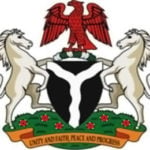Lee said this on Tuesday in a paper she presented at the ongoing 3-day National Council on Finance and Economic Development conference, holding in Kaduna.
The paper was entitled “Strengthening States Revenue Performance through Transparency and Open Government.’’
Lee observed that Nigeria’s revenues were very low due to contraction in oil revenues and the stagnancy in the non-oil revenues which she attributed to the absence of stable tax policy reforms and weak tax administration.
She said that with no improvement in revenue collection, total spending would decline; debt would increase while fiscal space would shrink.
ALSO READ: FG deploys 1,700 tax officers to 33 states —Adeosun
The expert noted that the government could not deliver on its social and development agenda without it increasing total public spending.
According to her, the only mechanism to increase government expenditure in a sustainable way is to triple total revenue through mobilising non-oil revenue.
“However, Nigerian tax perception survey shows low tax compliance due to weak transparency and accountability.
“Corporate income tax is less than six per cent of registered taxpayers, personal income tax shrinks to two per cent, while compliance in the case of VAT varies between 15 and 40 per cent.
“This is worrisome because low tax compliance reduces states revenues and strengthening revenue and increasing expenditure efficiency needs to be underpinned by an increase in transparency and accountability.”
Lee, however, said that the Nigerian states could increase transparency and accountability to strengthen IGR through harmonisation of revenue collection and automation of tax payment.
She also said that states could also increase accountability on the public services by making available the publication of approved budgets and audited financial statements to the public.
“Empower revenue agencies as the sole agencies responsible for revenue collection and accounting, established a consolidated revenue account and development of a monitoring dashboard to track collection in real time.
“Kwara and Kaduna states are a good example of states where such reforms were initiated with a significant increase in IGR,” she said.
Meanwhile, the Accountant-General of the Federation, Ahmed Idris, said that automated collection and management of non-oil revenue was critical to increase its performance in revenue generation and sustenance.
Idris stressed that the much-needed efficiency required in harnessing the vast potentials in non-oil revenues could only be achieved through the full application of automation.
According to him, the government must as a matter of priority, focus attention to this critical element of boosting its revenue base outside of oil by committing more resources for its actualisation.







